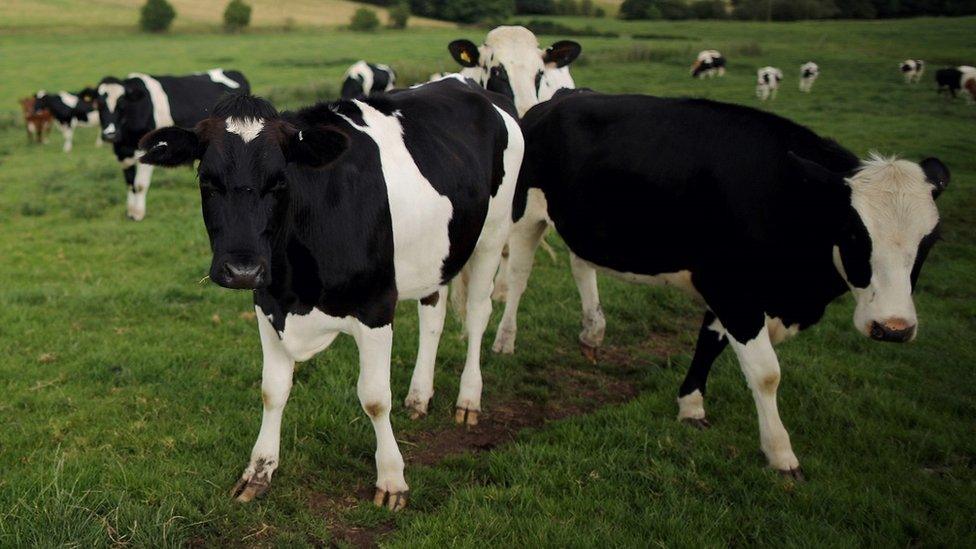Badger cull considered in attempt to tackle bovine TB
- Published
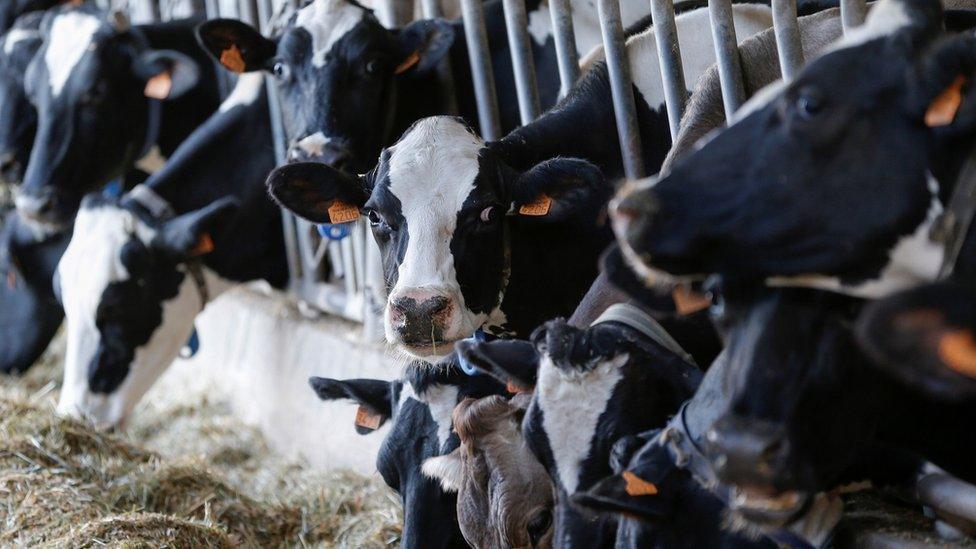
Bovine TB costs the taxpayer up to £40m pounds a year
A badger cull is the one of the preferred options of the Stormont agriculture department to try to combat tuberculosis (TB) in cattle.
Agriculture Minister Edwin Poots has started a public consultation in which he has outlined a series of measures.
The disease costs the taxpayer up to £40m a year and Mr Poots said the plans were far-reaching and based on science.
"Doing nothing is not an option," he said.
He opened the consultation at the Greenmount campus of the College of Agriculture, Food and Rural Enterprise.
"Spending £40m a year on bovine TB (bTB) and actually seeing the rates going up year on year is not sustainable," he said.
"So we have to take action.
"That action will ensure that many cows are not slaughtered because of bTB and that we'll have a healthier wildlife population.
"There are aspects of it that are controversial but if we want to get on top of it and eliminate the disease we have to take radical steps."
Changes to payments
In the consultation document, the Department of Agriculture, Environment and Rural Affairs (Daera) said it accepted that some form of "wildlife intervention" was needed to break the cycle of infection.
It outlined how a badger cull in areas with a high rates of bTB would offer the most immediate beneficial impact.
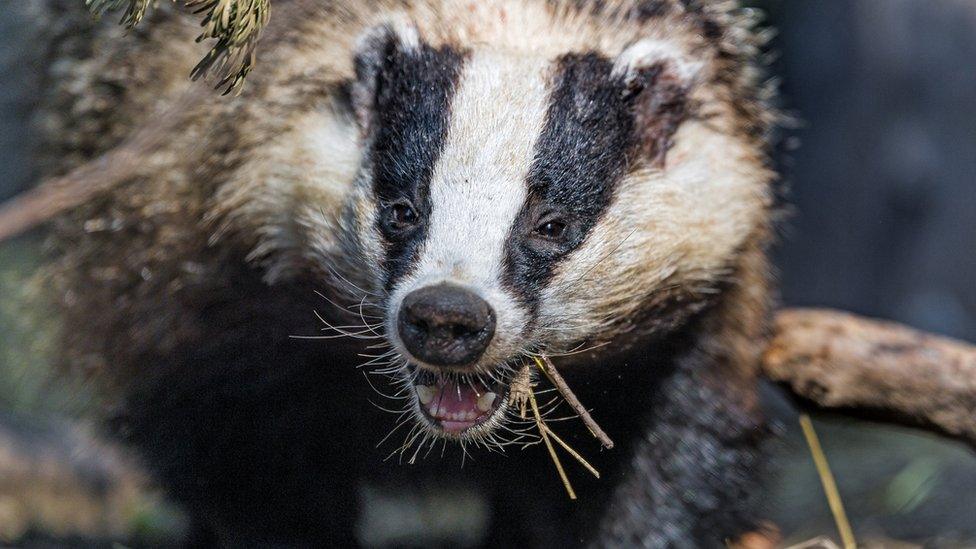
The USPCA says most badgers are healthy and culling them would be morally wrong
Daera's preferred option is a non-selective badger cull using controlled shooting of wild badgers.
That would be delivered and paid for by farmer-led companies.
About half of the £40m figure is spent on compensating farmers for animals with the disease.
In the new TB strategy it is proposed that the rates paid to farmers should change.
Currently farmers get 100% of the animals' market value.
That will drop to 75% and there will be a cap on compensation set at £5,000 for each animal removed.
The strategy also sets out plans for a new structure to deal with outbreaks of bTB.
Plans for increased testing and monitoring of animals is also set to be rolled out.
The issue of genetics is also mentioned, with the industry encouraged to include bTB resistant breeds.
'Stressful issue'
The strategy has received a mixed reception.
Ulster Farmer's Union president Victor Chestnutt said his organisation had been calling for Daera to "stop dragging its heels" on the problem of bTB for "more than a generation".
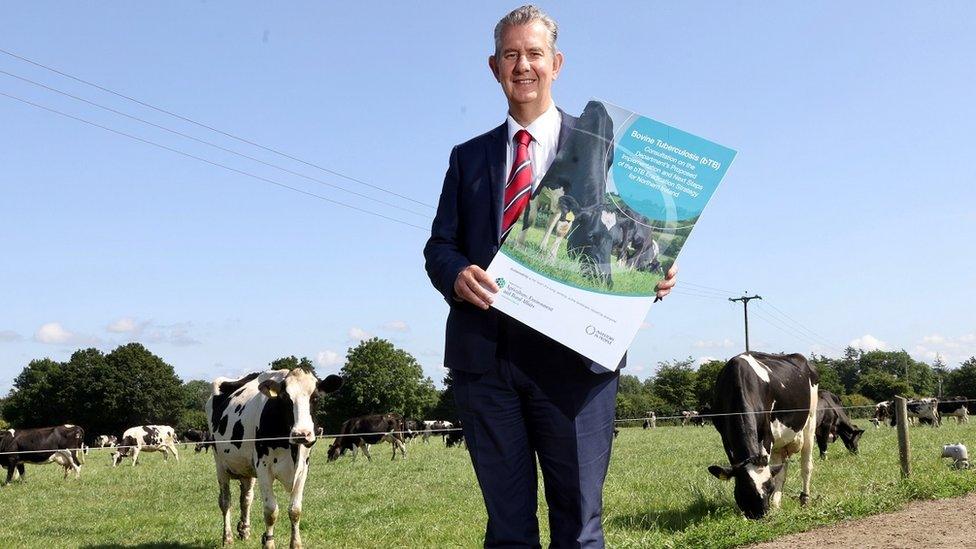
Agriculture Minister Edwin Poots opened the consultation at Cafre's Greenmount campus
"It continues to be the most stressful issue for Northern Ireland livestock farmers," he said.
"There is a high risk of badgers spreading bTB and meaningful action to control the disease in wildlife in a way that is evidence-based and cost effective needs to be put in place in Northern Ireland to protect cattle.
"It is not enough to have an approach to address TB in cattle and have no strategy to tackle the infection wherever it is in the environment.
"Both go hand-hand and are key to successfully eradicating the disease."
'No justification'
A number of Northern Ireland wildlife charities have reacted with dismay to the proposals.
Brendan Mullan, chief executive of the Ulster Society for the Prevention of Cruelty to Animals (USPCA), said badgers were not the cause of TB in cattle.
"Research shows that eight out of 10 badgers are healthy and there is therefore no justification for an indiscriminate cull of badgers in Northern Ireland," he said.
"The slaughter of healthy badgers as outlined in this consultation document is unjustifiable and morally wrong.
"If a wildlife intervention is to be part of the strategy, it should follow a test, vaccinate or remove approach, which has been shown by Daera's own research project to be effective."
The consultation period is open and will run until 10 September 2021 and the documents can be found the Daera website.
Related topics
- Published12 December 2017
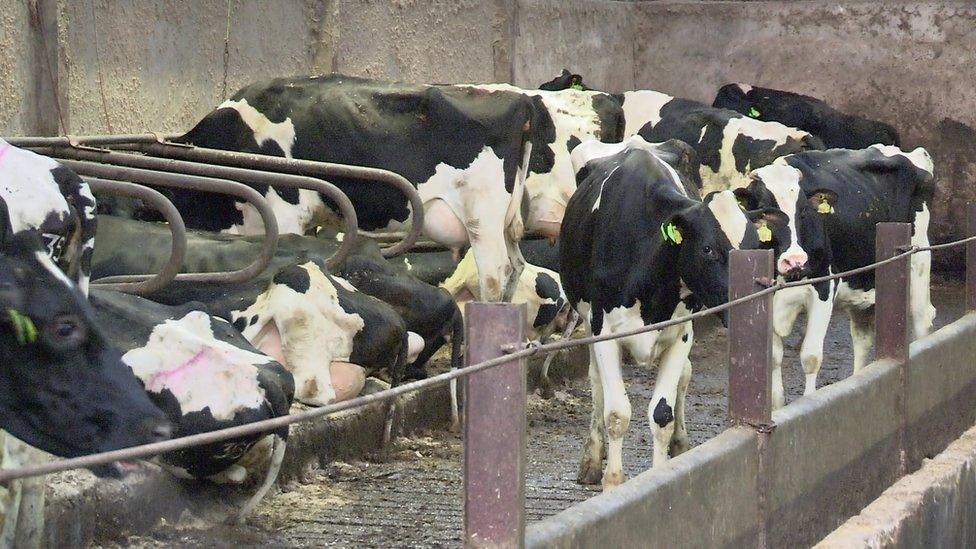
- Published15 December 2016
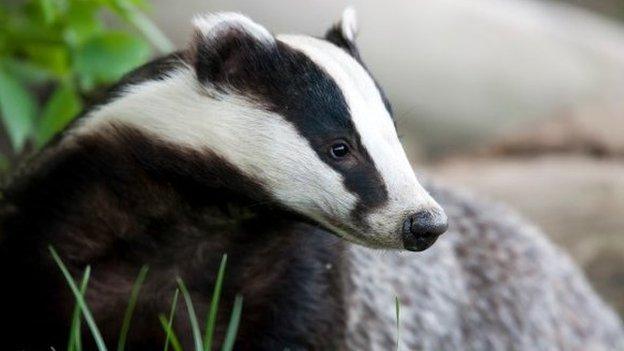
- Published27 September 2019
